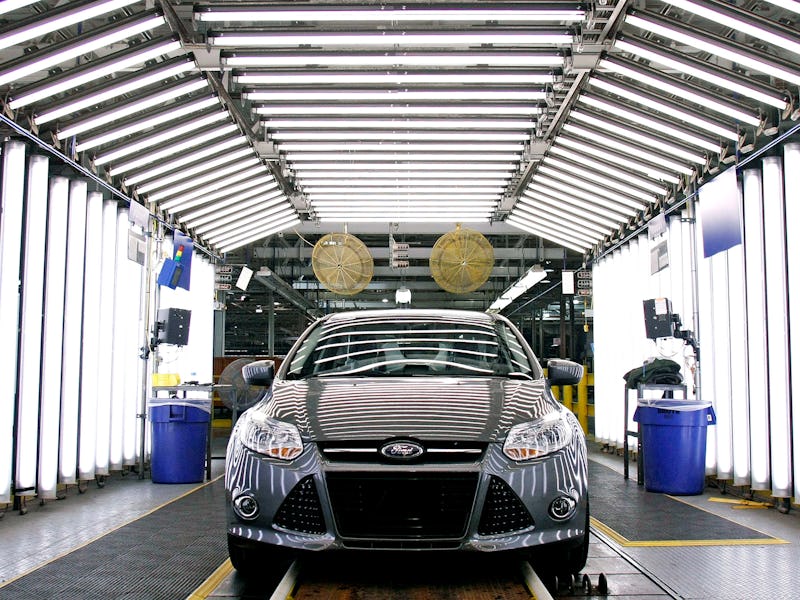If Ford's "Futurist" is Right, You'll Be "Driving" at Age 100

Sheryl Connelly’s job is to predict the future. Connelly is the in-house “futurist” at Ford Motor Company, a multinational brand that is currently trying to break from its long-standing reputation as just an automaker, and branch out into the wider world of mobility.
This week, Ford released its 2017 Trends Report, which is 49 glossy pages of market research conducted over a tumultuous 2016. It’s packed with clues about the company’s direction. While the trends report is mostly statistics and surveys unconnected to cars, Connelly tells Inverse that she thinks the future is all autonomous.
Connelly says the personal car has come to represent individuality, freedom, and mobility in American culture. Taking a difficult skill like driving out of the hands of human beings could let people previously confined to their living quarters get out and experience the world.
“The world is aging rapidly in ways that no other generation has experienced before,” Connelly says. “If the average global lifetime is 80, but scientists say the first person to live to 150 has already been born, there’s going to be a dramatic trend upward. An autonomous future means people of older years may be able to hold on to their mobility options much longer.”
Queen Elizabeth could finally quit her day job as a train conductor.
And mobility is synonymous with freedom in American culture. “I don’t know if you’ve had the misfortune to have to take away car keys from someone you love, but it’s a really heartbreaking task,” Connelly says. “In a real sense you’re taking away their independence and their freedom, but in a more subtle sense you’re taking away their dignity.”
But the other threat to American car culture is the rise of the sharing economy. While personal car ownership is still emblematic of success in America, the rampant use of fossil fuels is ruining the environment. One way people can help is reducing the number of cars on the streets — which means people will have to share.
Connelly is looking forward to the company’s role in the sharing economy. More automakers are looking into a subscription model for cars, and Ford is definitely on-board.
“We’re trying to make sure that the vehicle is an individualized experience, whether you own the vehicle or not,” Connelly said.
If autonomous technology works out, the future could be filled with fewer cars and drivers, but even more people on the road.